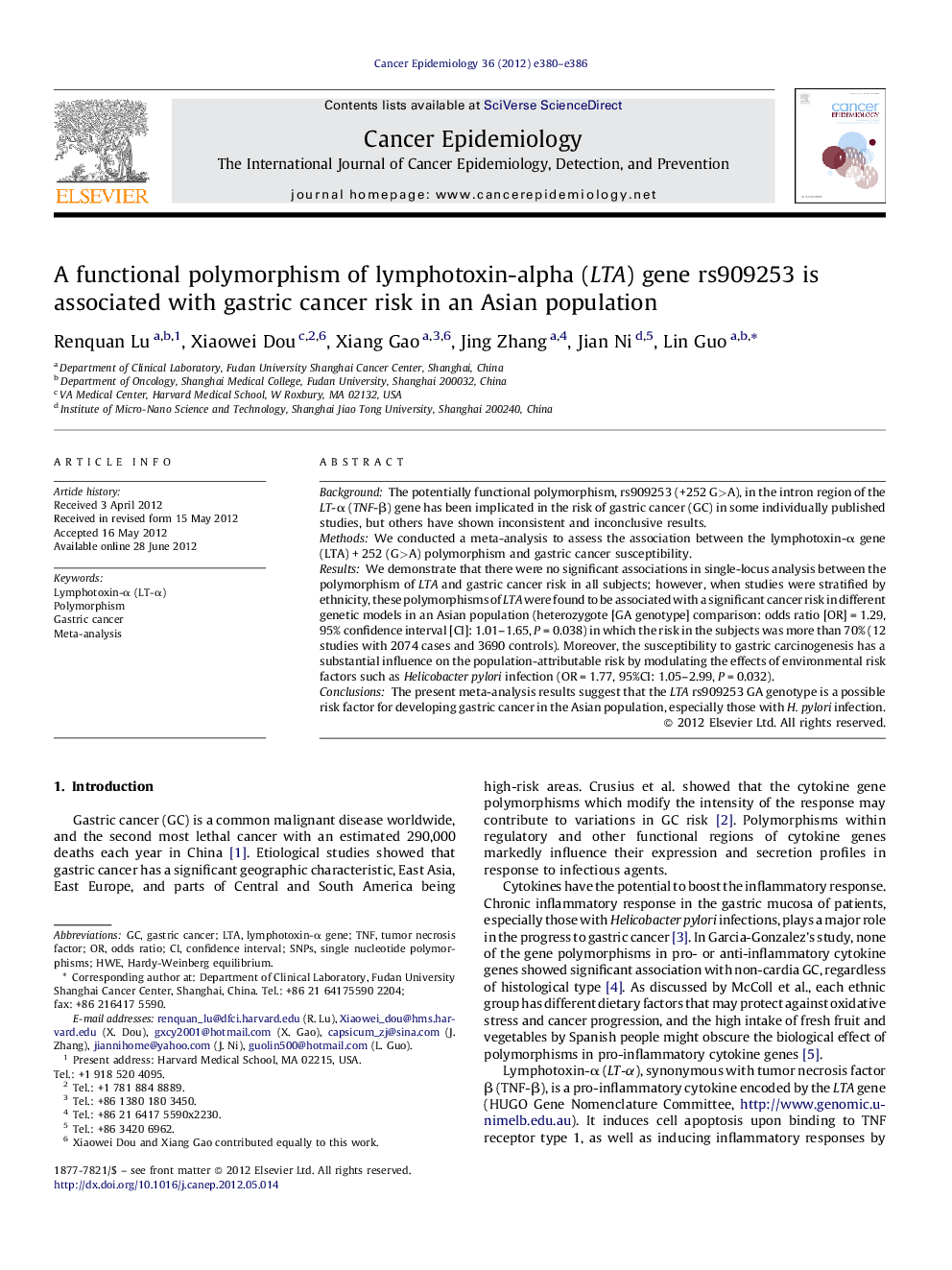| Article ID | Journal | Published Year | Pages | File Type |
|---|---|---|---|---|
| 2108945 | Cancer Epidemiology | 2012 | 7 Pages |
BackgroundThe potentially functional polymorphism, rs909253 (+252 G>A), in the intron region of the LT-α (TNF-β) gene has been implicated in the risk of gastric cancer (GC) in some individually published studies, but others have shown inconsistent and inconclusive results.MethodsWe conducted a meta-analysis to assess the association between the lymphotoxin-α gene (LTA) + 252 (G>A) polymorphism and gastric cancer susceptibility.ResultsWe demonstrate that there were no significant associations in single-locus analysis between the polymorphism of LTA and gastric cancer risk in all subjects; however, when studies were stratified by ethnicity, these polymorphisms of LTA were found to be associated with a significant cancer risk in different genetic models in an Asian population (heterozygote [GA genotype] comparison: odds ratio [OR] = 1.29, 95% confidence interval [CI]: 1.01–1.65, P = 0.038) in which the risk in the subjects was more than 70% (12 studies with 2074 cases and 3690 controls). Moreover, the susceptibility to gastric carcinogenesis has a substantial influence on the population-attributable risk by modulating the effects of environmental risk factors such as Helicobacter pylori infection (OR = 1.77, 95%CI: 1.05–2.99, P = 0.032).ConclusionsThe present meta-analysis results suggest that the LTA rs909253 GA genotype is a possible risk factor for developing gastric cancer in the Asian population, especially those with H. pylori infection.
